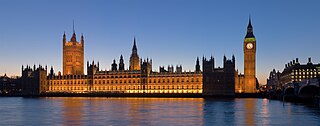
A legislature is an assembly with the authority to make laws for a political entity such as a country or city. They are often contrasted with the executive and judicial powers of government.

John Johnston Parker was an American politician and United States circuit judge of the United States Court of Appeals for the Fourth Circuit. He was an unsuccessful nominee for associate justice of the United States Supreme Court in 1930. He was also the United States alternate judge at the Nuremberg trials of accused Nazi war criminals and later served on the United Nations' International Law Commission.
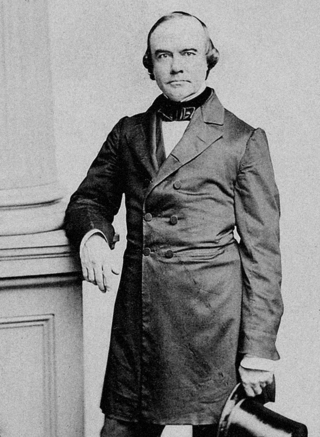
Benjamin Robbins Curtis was an American lawyer and judge. He served as an associate justice of the United States Supreme Court from 1851 to 1857. Curtis was the first and only Whig justice of the Supreme Court, and was also the first Supreme Court justice to have a formal law degree. He is often remembered as one of the two dissenters in Dred Scott v. Sandford (1857).

Lycoming College is a private liberal arts college in Williamsport, Pennsylvania. Founded in 1812, Lycoming College is affiliated with the United Methodist Church but operates as an independent institution. Through its history, it has been an academy, seminary, junior college, and four-year college.

The University of Wisconsin Law School is the law school of the University of Wisconsin–Madison. Located in Madison, Wisconsin, the school was founded in 1868. The University of Wisconsin Law School is guided by a "law in action" philosophy, which emphasizes the role of the law in practice and society. Juris Doctor graduates of the law school enjoy admission to the Wisconsin bar by diploma privilege.

The United States Fish Commission, formally known as the United States Commission of Fish and Fisheries, was an agency of the United States government created in 1871 to investigate, promote, and preserve the fisheries of the United States. In 1903, it was reorganized as the United States Bureau of Fisheries, sometimes referred to as the United States Fisheries Service, which operated until 1940. In 1940, the Bureau of Fisheries was abolished when its personnel and facilities became part of the newly created Fish and Wildlife Service, under the United States Department of the Interior.

Willard Hall, was a Delaware attorney and politician from Wilmington in New Castle County. He was a member of the Democratic-Republican Party, who served in the Delaware Senate, as a United States representative from Delaware and as a United States district judge of the United States District Court for the District of Delaware. He served as the first President of the Delaware Historical Society, was President of the state Bible society, and was instrumental in the formation of the Wilmington Savings Fund Society as a community bank, serving as its President for more than 40 years.

Marquette University Law School is the law school of Marquette University in Milwaukee, Wisconsin. It is one of two law schools in Wisconsin and the only private law school in the state. Founded in 1892 as the Milwaukee Law Class, MULS is housed in Eckstein Hall on Marquette University's campus in downtown Milwaukee.
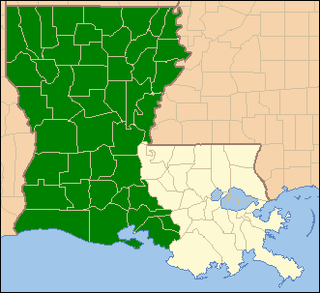
The United States District Court for the Western District of Louisiana is a United States federal court with jurisdiction over approximately two thirds of the state of Louisiana, with courts in Alexandria, Lafayette, Lake Charles, Monroe, and Shreveport. These cities comprise the Western District of Louisiana.
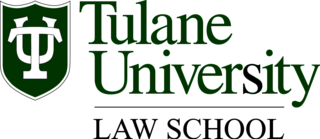
Tulane University Law School is the law school of Tulane University. It is located on Tulane's Uptown campus in New Orleans, Louisiana. Established in 1847, it is the 12th oldest law school in the United States.
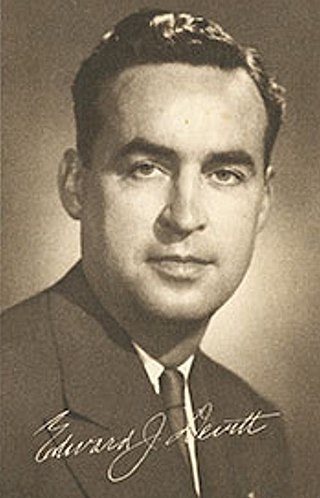
Edward James Devitt was a United States representative from Minnesota and a United States district judge of the United States District Court for the District of Minnesota.

John Jay was an American statesman, patriot, diplomat, abolitionist, signatory of the Treaty of Paris, and a Founding Father of the United States. He served as the second governor of New York and the first chief justice of the United States. He directed U.S. foreign policy for much of the 1780s and was an important leader of the Federalist Party after the ratification of the United States Constitution in 1788.
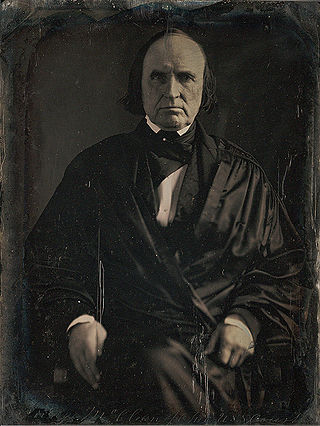
John McLean was an American jurist and politician who served in the United States Congress, as U.S. Postmaster General, and as a justice of the Ohio and U.S. Supreme Courts. He was often discussed for the Whig Party nominations for President, and is also one of the few people who served in all three branches of government.

Benjamin Parke was an American lawyer, politician, militia officer, businessman, treaty negotiator in the Indiana Territory who also served as a United States federal judge in Indiana after it attained statehood in 1816. Parke was the Indiana Territory's attorney general (1804–1808); a representative to the territory's first general assembly (1805); its first territorial delegate to the United States House of Representatives (1805–1808); one of the five Knox County delegates to the Indiana constitutional convention of 1816; and a territorial court judge (1808–1816). After Indiana attained statehood, Parke served as the first United States District Judge of the United States District Court for the District of Indiana (1817–1835).
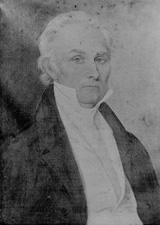
Charles Tait was a United States senator from Georgia and a United States district judge of the United States District Court for the District of Alabama, the United States District Court for the Northern District of Alabama and the United States District Court for the Southern District of Alabama.

John Hatsell was an English civil servant, clerk of the House of Commons, and an authority on parliamentary procedure.
The coats of arms of the U.S. states are coats of arms, that are an official symbol of the state, alongside their seal. Eighteen states have officially adopted coats of arms. The former independent Republic of Texas and Kingdom of Hawaii each had a separate national coat of arms, which are no longer used.

Historical coats of arms of the U.S. states date back to the admission of the first states to the Union. Despite the widely accepted practice of determining early statehood from the date of ratification of the United States Constitution, many of the original colonies referred to themselves as states shortly after the Declaration of Independence was signed on 4 July 1776. Committees of political leaders and intellectuals were established by state legislatures to research and propose a seal and coat of arms. Many of these members were signers of the Articles of Confederation, Declaration of Independence, and United States Constitution. Several of the earliest adopted state coats of arms and seals were similar or identical to their colonial counterparts.

















